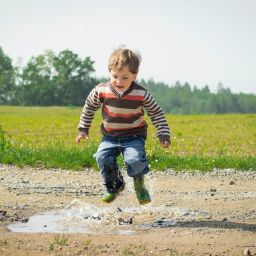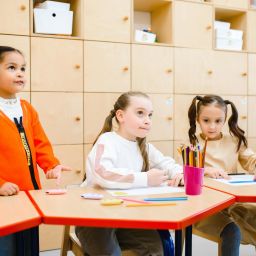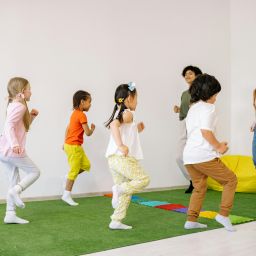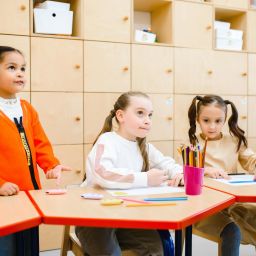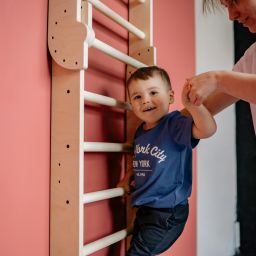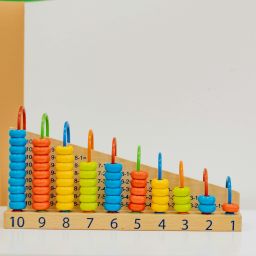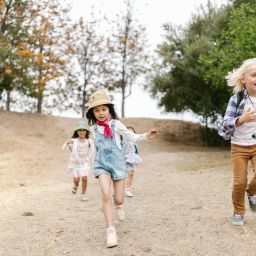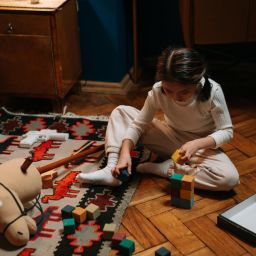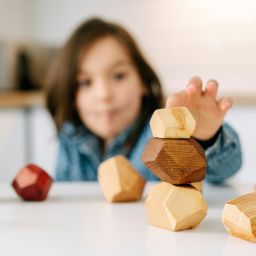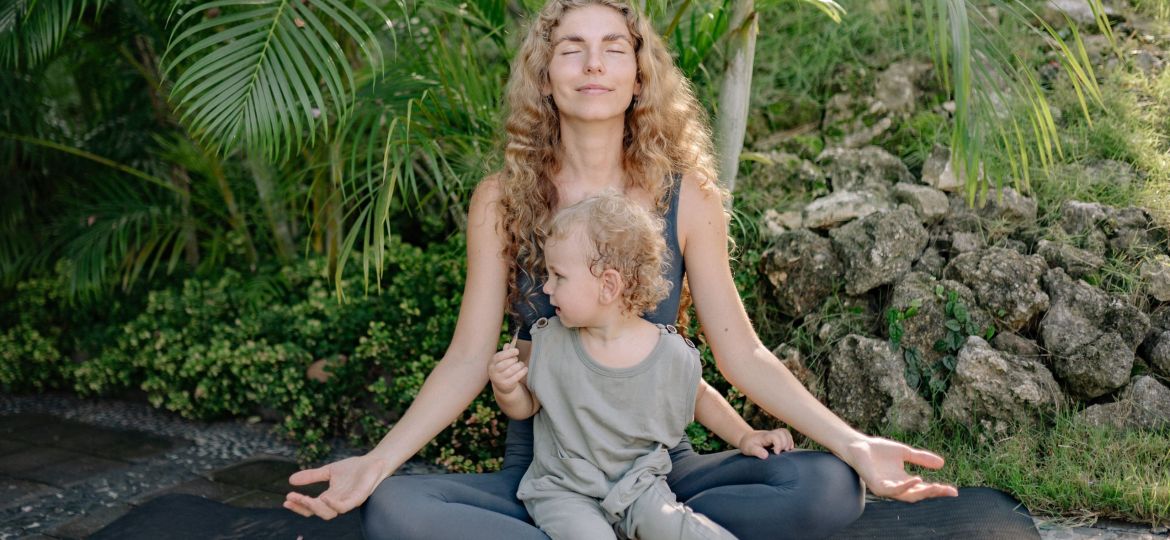
FH Summary: Breathing, particularly nasal breathing, plays a crucial role in a child’s development, enhancing their physical, emotional, and cognitive growth. Using simple, interactive breathing exercises like “Bubble Breathing,” “Teddy Bear Breathing,” and “The Smell and Blow,” parents can effectively foster this key First Habit in their children. By prioritizing proper nasal breathing habits, parents can set a strong foundation for their children’s holistic development, contributing to an upward spiral in their overall wellbeing.
In the realm of child development, there is one foundational habit that stands above the rest in terms of being neglected in common discourse – the act of breathing. Breathing, particularly nasal breathing, might seem simple and automatic, but it is a pivotal habit that can shape your child’s development in profound ways. We are going to keep coming back to this foundational concept for optimal childhood development. Please take a look at our post here to see for yourself just how important nasal breathing is for a lifetime of success. Below is a comprehensive guide by First Habits that aims to shed light on the importance of nasal breathing and provides strategies to help parents nurture this habit in their children through engaging breathing exercises.
Breathing: An Integral Aspect of Child Development
We take about 20,000 breaths every day. A function so regular and automatic, yet, its significance is often overlooked. Adequate breathing habits can catalyze your child’s growth and overall wellbeing. Be it bolstering focus, fostering emotional stability or fortifying general health, proper breathing habits, particularly nasal breathing, can be the key to unlocking a transformative phase in your child’s life.
Esteemed author James Nestor in his book Breath: The New Science of a Lost Art, has emphasized, “Breathing is a missing pillar of health.” Despite being often overshadowed by all the daily demands that come along with raising children, the manner in which your child breathes can have far-reaching impacts on their cognitive, physical, and emotional development.
Understanding Nasal Breathing and its Impact
Breathing via the nose, an act that seems so ordinary, is actually a potent instrument in the orchestration of child development. Nasal breathing delivers more oxygen, sifts out airborne irritants, and moisturizes incoming air more effectively than its counterpart, mouth breathing. Hence, it provides a formidable shield against common respiratory challenges, which can lead to respiratory infections that can potentially keep your child out of school and make it harder to catch up to peers in their class.
Many studies underscore the merits of nasal breathing, illustrating how it improves blood circulation, optimizes oxygen and carbon dioxide levels, stabilizes the breathing rate and augments overall lung volumes.
Building Nasal Breathing Habits: The Potency of Breathing Exercises
Instilling habits of nasal breathing can have a profound effect on your child’s health. But the question remains, how can we nurture this habit in young children who are still exploring their bodies and their environment? One solution lies in the magic of breathing exercises – simple, interactive, and enjoyable activities that promote nasal breathing.
- Bubble Breathing: An Interactive Introduction to Nasal Breathing
One engaging approach to introduce nasal breathing to children is the practice of “Bubble Breathing.” By focusing on softly blowing steady streams of air, which would create a steady stream of bubbles if they were underwater, children naturally partake in slower, deeper nasal breaths. This exercise not only provides a fun-filled introduction to nasal breathing but also ensures that the learning process remains entertaining.
- Teddy Bear Breathing: Discovering the Rhythm of Breath
“Teddy Bear Breathing” is another enjoyable exercise that encourages nasal breathing and simultaneously introduces your child to the concept of diaphragmatic or belly breathing. The aim is for your child to inhale slowly through their nose, causing the teddy bear resting on their belly to rise and as they exhale, the teddy bear descends. This exercise renders the learning process instinctive, effective, and fun.
- The Smell and Blow: Stimulating the Senses
“The Smell and Blow” is a whimsical, imaginative exercise that involves your child’s sense of smell. The activity entails pretending to inhale deeply through the nose as if smelling a flower, then gently exhaling through the nose as if blowing bubbles. This imaginative exercise makes nasal breathing stimulating, fun and effortless to practice.
In addition to the critical nature of nasal breathing, we often discuss the profound foundational importance of diaphragmatic breathing throughout First Habits. Here is another quick exercise you can do with your child to begin developing the habit and awareness of proper breathing.
- Have them lie on their back with their head on a pillow. Use a mat or blanket for support.
- Place a pillow or folded blanket under their knees.
- Place a hand on their chest and a hand below their rib cage, feeling the movement of the diaphragm.
- Tell them to slowly inhale through their nose, feeling their stomach pressing into your hand. Work toward inhales and exhales of about 5-6 second each without pause in between each breath.
- Their chest should not move, so keep that hand as still as possible.
- Exhale by tightening your abdominal muscles, keeping your upper hand completely still.
In order to keep things light and fun, make it a game with your child to extend the inhales and exhales as long as possible. You can also compete to keep the hand on their chest as still as possible or substitute a toy and try to have it move as little as possible.
Over time this should become easier and should feel more natural. While it might be best to start lying down, over time you can progress to a seated position and then throughout your normal day!
Sophia’s Transformation: A Journey Towards Healthier Breathing
To comprehend the transformative potential of these concepts, let’s step into Sophia’s world. Sophia, a lively seven-year-old, was like any other child her age, brimming with life and ceaselessly active. However, her parents noticed that she was a habitual mouth breather, leading to frequent bouts of cold, snoring and a constant sense of fatigue.
Determined to aid Sophia, her parents discovered First Habits. Here, they learned about the crucial role of nasal breathing and how it could catalyze an upward spiral in Sophia’s health and energy levels. Motivated by this knowledge, they started incorporating the above exercises into Sophia’s daily routine, making them a family affair.
Gradually, Sophia’s breathing habits evolved. She began breathing more through her nose, even during her high-energy play sessions. This change was not confined to a notable improvement in her health; she also began to demonstrate better concentration in her schoolwork. Altering the way Sophia breathed marked a significant turning point in her developmental journey.
Breathing Towards a Promising Future
At First Habits, we understand that parenting is a continuum of decisions centered around your child’s wellbeing. Each decision, analogous to every breath we take, cumulatively forms the broader picture of your child’s health and development. By focusing on cultivating proper nasal breathing, you are establishing a strong foundation that drives an upward spiral in your child’s life.
Building a future where your child thrives doesn’t always require monumental changes. At times, it’s about recognizing the potential residing in everyday habits like breathing and harnessing them for your child’s benefit. By guiding your child to breathe correctly, you’re not just enhancing their health – you’re also fostering a degree of self-awareness that will benefit them throughout their life.
As a parent, with every breath your child takes, you’re laying the foundation for their holistic development and a promising future. At First Habits, we’re committed to assisting you every step of the way. Visit our website and subscribe to our weekly newsletter for detailed insights into the most crucial habits to foster in your children and effective techniques to do so. Together, let’s breathe life into the immense potential that resides within every child.


